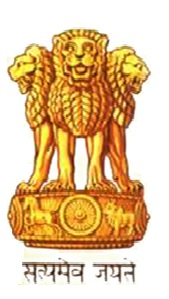
Permanent Mission of India
Geneva
Intervention by India on Agenda Item 12 - Programme and Budget matters at the 140th Session of Executive Board of the WHO delivered by Shri. Amal Pusp, Director Ministry of Health and Family Welfare on 26 January 2017
Mr. Chairman,
Thank you for giving the floor to India and also for informing the House that today is India’s Republic Day. I commend your information supply chain management system for the purpose. We bring greetings to all of you on the occasion. This is the day we adopted our Constitution in 1950.
Mr. Chairman,
Delegation of India would like to present its position on the broader idea of increased Assessed Contributions. India has maintained that the main reason for misalignment and persistent funding gaps of programme budget is the increasing reliance on tied voluntary contributions, which stand at nearly 80% and the gradual decline in Assessed Contribution. This issue is not a new one. This has been raised many a time. It is only unfortunate that it has gained some traction in the context of the emergency programme.
The delegation of India is ready to engage constructively in the discussion perhaps through a working group so that we can narrow our position gaps and build a common understanding on mitigating the Financial crunch faced by the organisation.
Our constructive engagement with WHO is evidenced by the fact that India was among one of the early group of countries to contribute to the WHO Contingency Fund for Emergencies.
However, we would like to express some of our concerns and would like to seek some clarification from the WHO Secretariat.
When the new WHO emergency programme was approved, our understanding was that it will not have an adverse impact on the regular normative programme areas. We would like, therefore, that the budget space for TB, Malaria and vaccine preventable diseases, which continue to be major concerns for us, are retained or increased in the proposed programme budget .
The World Health Assembly in its latest resolution on the follow up to the CEWG requested the DG to allocate sufficient resources for the implementation of the CEWG strategic workplan, particularly the full development of the global R&D observatory. However, we note that the budgeted funds for this category has been reduced for the next biennium. This is especially disturbing as India led the negotiations on the resolution and actively worked to get Member States consensus on prioritising WHO’s work on health R&D.
Thank you.












